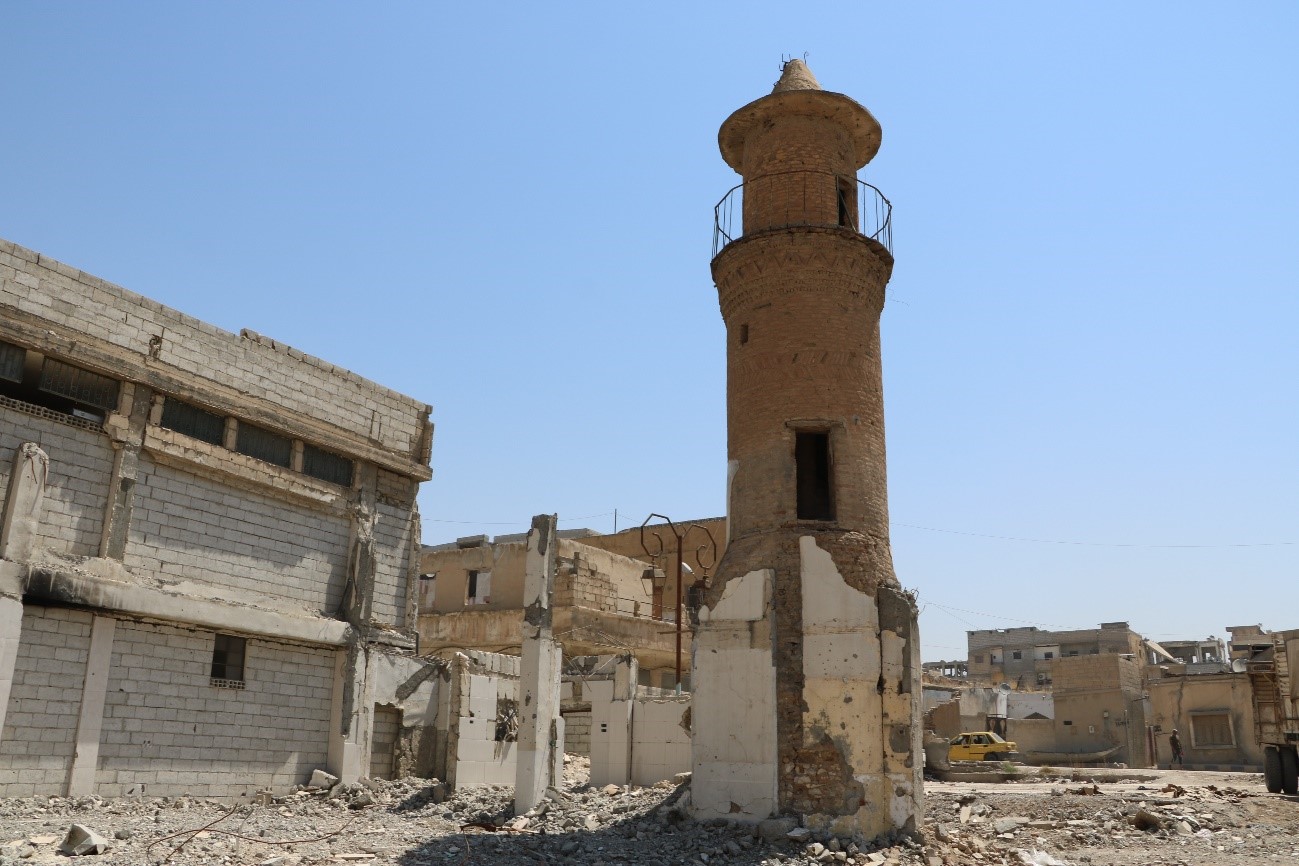
RehabiMed is now implementing the Project Documentation and protection of cultural heritage in Raqqa City, from the damage caused by the occupation of the Islamic State. The Project started creating a team of local experts for the assessment of the state of the monuments, the evaluation of the damages and proposing consolidation interventions. Now, beyond the overall assessment of the damages to the city’s heritage, RehabiMed is focussing on the emergency consolidation works of the al-Mansur Grand Mosque, the walls of the city, the al-Hamidi mosque and the al-Banat castle. At the same time, actions has been launched to involve the local population in these actions and to awareness on their precious heritage in danger.
Raqqa is a historic city, located in northeaster Syria, along the Euphrates River. With a population of around 200,000, it was incorporated as the capital of the Islamic State in 2014 until in 2017, when it was expelled by the Kurdish army who currently maintains the control. The city and its surroundings conceal a great monumental and archaeological wealth, which dates back more than 3000 years. The battles that have taken place in this area and the action of ISIS itself have caused destruction to the cultural heritage of the city, which requires urgent actions for its consolidation and preservation. This project is carried out with the CSIC, Heritage for Peace and the Northeast Syrian Authority, with funding from the Cultural Protection Found of the British Council.
Author: Xavier Casanovas (RehabiMed)
